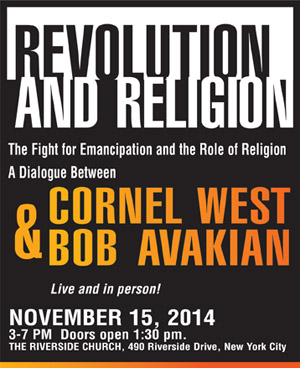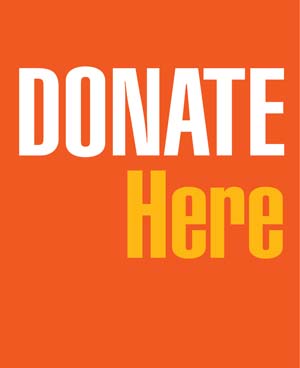The Dialogue as a Point of Reference: There Will Be Answers
October 20, 2014 | Revolution Newspaper | revcom.us
From a reader:
I recently attended a lecture at large private university that addressed the question of race in the digital age. The speaker, a respected African-American journalist, whose work deals often with the question of race, spoke to how he became a writer. It was attended by journalism students, as well as other students and the general public. I gave out cards for the Dialogue between Cornel West and Bob Avakian on Revolution and Religion: The Fight for Emancipation and the Role of Religion. I found that some people had already heard about the Dialogue through other events, like on Ferguson or through getting cards on the campus.
During the Q & A, I got up, introduced myself as a revolutionary and said I had a comment and an invitation. I said 60 days have passed since the murder of Eric Garner by NYPD chokehold in Staten Island, New York. Thirty days have passed since the murder of Michael Brown in Ferguson. And 60 people had been killed in one month by the police nationwide, and nothing has happened to the cops who killed them, while the victims are often treated like criminals—that it will be brought up that they did something when they were a teenager. I said hundreds of years have passed since slavery, yet Black people are still oppressed. I asked how did he, as a Black journalist, deal with this question. And I invited him and everyone else in the room to come to the Revolution and Religion Dialogue between Cornel West and Bob Avakian, which is going to get into the Fight for Emancipation and the Role of Religion—it's about getting free of all of this.
The journalist said he tries to portray those who have been killed by the police as individual people, not a statistic. He writes about what it is like for their families who will not see them anymore. But he really didn't have any answers and said he didn't know what to do. I responded by saying, "Come to the Dialogue. There will be answers."
In later comments during the Q&A, the journalist brought out how African-Americans have faced what he called "domestic terrorism," citing the Tulsa race riots: lynchings and shootings of Black people for not taking off their hats to white people. He criticized those who want African-Americans to be respectable, e.g. coming down on hip-hop or telling young people to "pull up your pants." This he said was censoring African-American humanity. In that context, he criticized Obama's remarks about Black fathers and he asked why does Obama criticize Black fathers, but not white fathers.
Raising the question of what it will take to end this, and that this Dialogue would get into how to get free, changed the discussion. Everyone in the room, including on the panel, was challenged to look at real solutions and get out of the frameworks that justify all this and blame those most targeted. The Dialogue became a point of reference—with sections of people in the room definitely interested in coming to it and others considering.
Volunteers Needed... for revcom.us and Revolution
If you like this article, subscribe, donate to and sustain Revolution newspaper.



